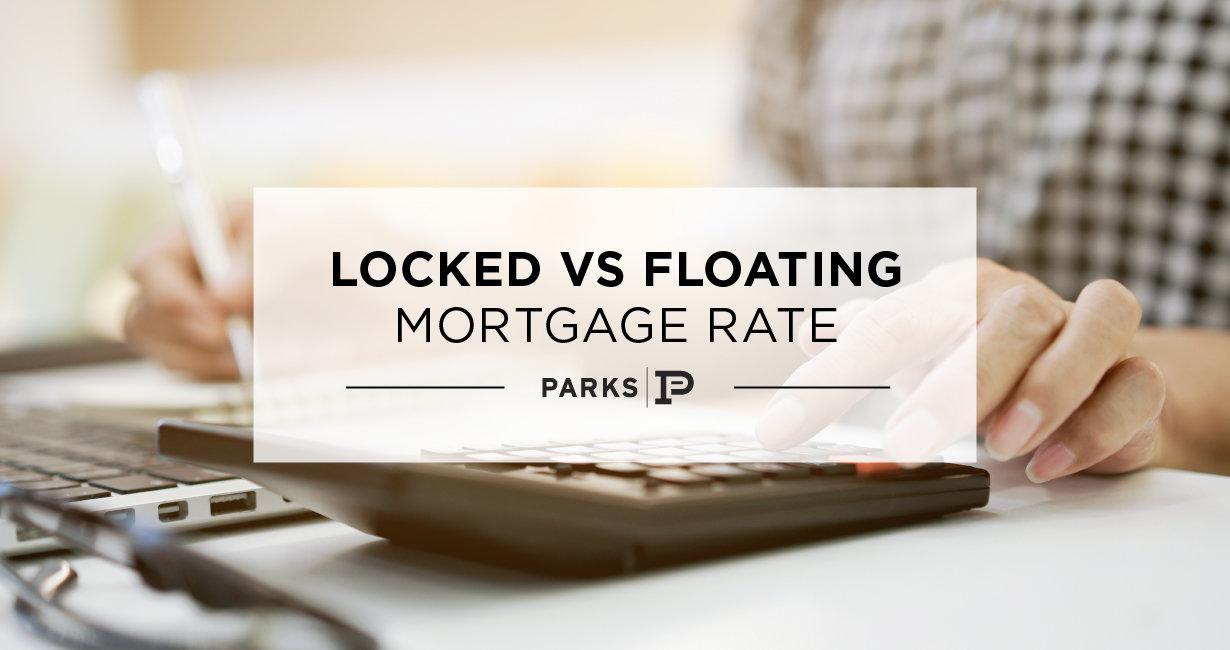Locked vs Floating Mortgage Rate: Which Is Better?
Posted by Jenni Barnett on Friday, November 1st, 2019 at 9:00am.

Mortgage rates have been relatively consistent, but don't let that get you too comfortable. Rates are changing all the time --by how much, and whether it will be in your favor, we cannot say. We can make intelligent guesses, but we can't predict with any certainty.
However, that doesn't mean that you are entirely powerless when it comes to taking charge of the mortgage rate you qualify for. You hold a lot of power, including the ability to qualify for a lower rate by improving your credit score, buying points, and exploring the rates of various home loan options.
And here is another idea for getting a low mortgage rate in an uncertain market: get a floating mortgage rate.
Locked and Floating Mortgage Rate Compared
Mortgage Rate Lock
"Locking" a mortgage rate means the interest rate won't change from the time we offer it to you until the closing of your loan. When the rate rises—as they're expected to—your rate won't budge. Sounds great, right? It is!
However, you should know that there are a few stipulations to a mortgage rate lock, such as:
- Closing within the predetermined time frame
- No changes to your mortgage application
- Rate lock timeframes range from 30 to 60 days, though longer terms are sometimes available.
Even with a locked rate, some circumstances can still cause a locked rate to adjust, namely:
- You change the type of mortgage or the amount of your down payment
- Your home appraisal is higher or lower than expected
- Your credit score changes
- There was trouble documenting your additional income such as bonuses or overtime
There is also a fee associated with locking in a rate, and the longer the rate lock term, the higher the fee. Plus, if the rate drops, you won't be able to take advantage of the lower rate—unless you have a "float down" option.
What is a Float Down Option?
A "float down" option means that you're able to reduce your interest rate if market conditions cause rates to drop during your lock term. This mortgage rate option is dependant on the daily market fluctuations. So if the interest rate goes up by the time you close on your mortgage, you'll lose some buying power.
But if the rate falls, you'll gain some buying power.
Choosing to float your mortgage rate is considered riskier because one can't truly predict what rates will do from one day to the next. But the potential for savings is very attractive, which is why many mortgage applicants choose it.
When Should You Choose to Float?
When rates are decreasing steadily from week to week, it might be a good idea to float it. There's a chance you'll get a better rate when it's time for the loan transaction to take place.
On the other hand, if rates a less steady or are moving higher, then you'll want to lock in your rates.
How much can a rate impact your monthly mortgage payment? Let's look at an example. A mortgage payment on a $200,000 home at a 4.5 percent interest rate would be $1,013. However, at a 4.75 percent interest rate, the payment would be $1,043.
That $30 difference that adds up to nearly $400 over a year!
Brought to you by Legacy Home Loans. Legacy's goal is to provide home loans to clients while providing them with the lowest interest rates and closing costs possible. Furthermore, they pledge to help borrowers overcome roadblocks that can arise while securing a loan.
To learn more, visit: mylegacylender.com







